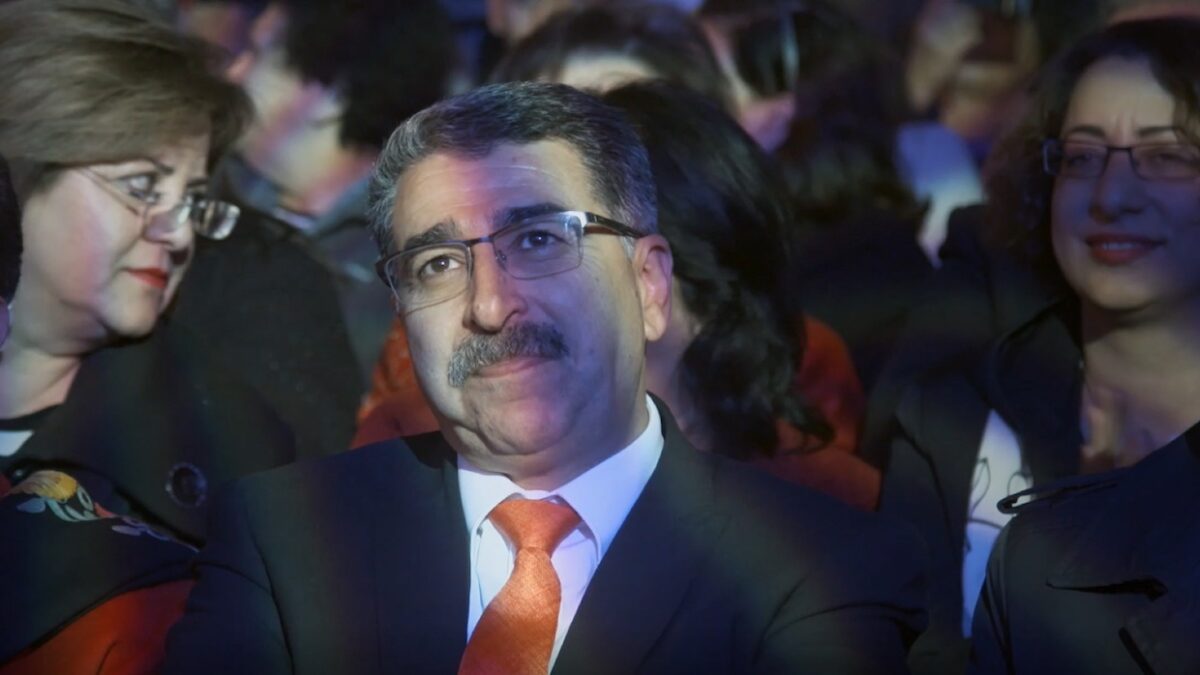David Osit’s absorbing 89-minute documentary, Mayor, is a nuanced portrait of Musa Hadid, the Christian Palestinian mayor of Ramallah — the seat of the Palestinian Authority and the epicenter of commerce and culture in the West Bank, which has been occupied by Israel since the 1967 Six Day War.
Osit, whose film is currently available virtually, is like a fly on the wall. He observes practically everything but remains unobtrusive.
A civil engineer by profession, Hadid has been running this city of some 40,000 inhabitants for almost a decade now. Although he’s a Palestinian patriot who detests the occupation, he’s also a technocrat who cares deeply about the welfare of Ramallah, which was once a bastion of Palestinian Christians in the region.
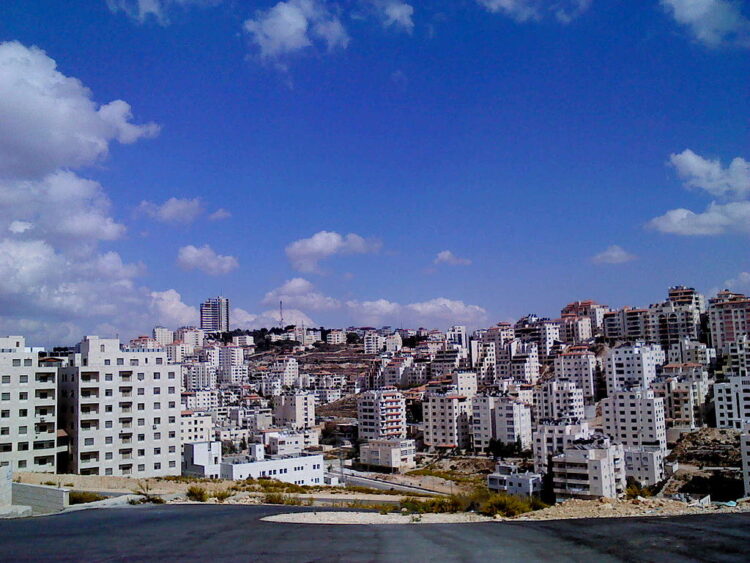
Osit doesn’t dwell on the mayor’s background at all. It doesn’t interest him. He focuses instead on Hadid’s pragmatic efforts to create “sustainable” governance in Ramallah, which is only a 10 to 15 minute drive from Jerusalem, the capital of Israel. Osit’s film unfolds between 2017 and 2018.
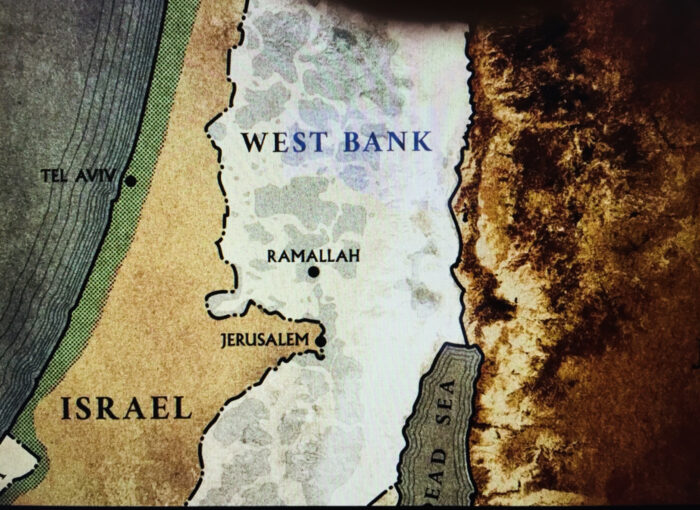
As it gets under way, Hadid and an aide are having a discussion about the feasibility of “branding” Ramallah with a catchy title. He says he doesn’t understand the idea behind the concept, but the municipal council eventually settles for the slogan We Ramallah.
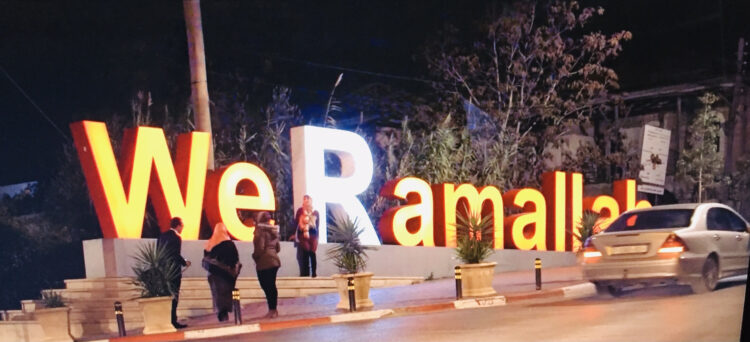
Hadid is a man in motion. He says hello to pedestrians on the street, delivers an impromptu lecture on local government to students, and greets grade three students at a school. Attending a Christmas celebration, he calls for “freedom and independence,” an allusion to the Palestinians’ struggle for statehood.
Their conflict with Israel is omnipresent. Hadid listens to a newscast of an Israeli army incursion into a suburb of Ramallah. After learning that U.S. President Donald Trump has recognized Jerusalem as Israel’s capital and plans to move the American embassy in Tel Aviv to Jerusalem, he murmurs, “We’re doomed.”
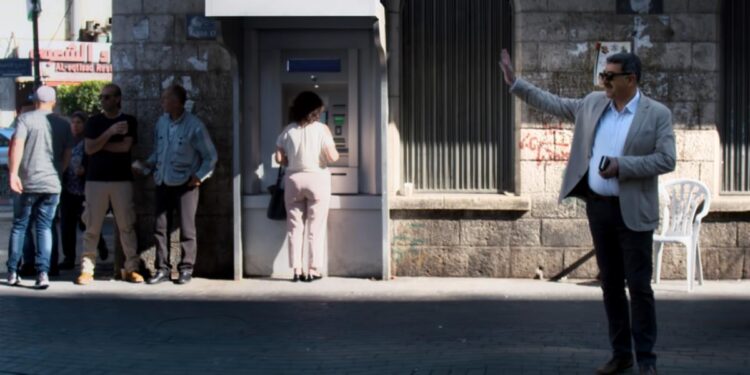
In a half-jocular moment, he asks his secretary to buy him a radio so that he can listen to the latest news about the Middle East.
From a car window, he watches a clash between Israeli soldiers and Palestinian protesters livid over Trump’s recognition of Israel’s claim to Jerusalem. As this unsettling confrontation takes place, he reiterates his utilitarian belief that his role is to provide municipal services to Ramallah’s residents. Shortly afterward, he learns that sewage has spilled into a valley and orders the problem to be fixed.
Speaking to a German delegation, Hadid complains about the restrictions that Israel imposes on the Palestinians. Citing an example, he says he is still waiting for an Israeli permit to build a sewage treatment plant. As far as he’s concerned, Israel treats his people like slaves.
Hadid affects a world-weary mien as he deals with nuts-and-bolts problems and talks about current political developments.
From a balcony in his home, he and his family can plainly see an Israeli settlement in the West Bank. “They’re suffocating us,” complains his daughter.
Hadid condemns the occupation yet again as he delivers lectures in Washington, Durban, Bonn and Oxford.
Back in Ramallah, he welcomes an important visitor, Prince William of Britain, who thanks officials for an “unforgettable display of Palestinian hospitality and culture.”
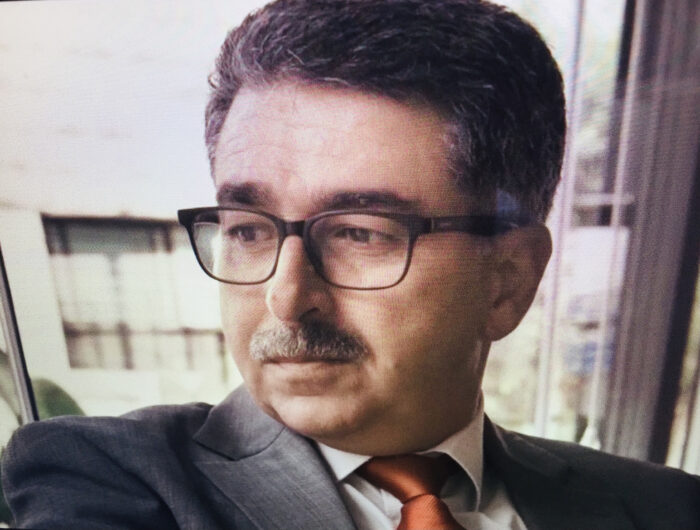
The film takes on a raw edge as Israeli troops enter Ramallah following a Palestinian attack on a settlement. Hadid waits anxiously in his office as the raid takes place. Being technically challenged, he does not know how to livestream the event on Facebook.
Amid the confusion, he submits to an interview. In his view, Israel is trying to humiliate the Palestinians. “This land is ours,” he declares defiantly. A little later, he acknowledges that Israel has the upper hand. As he puts it, “Our situation is bullshit.”
The Palestinian dream of statehood still seems far off in the distance. But in the meantime, Hadid is doing his best to be a good mayor.
